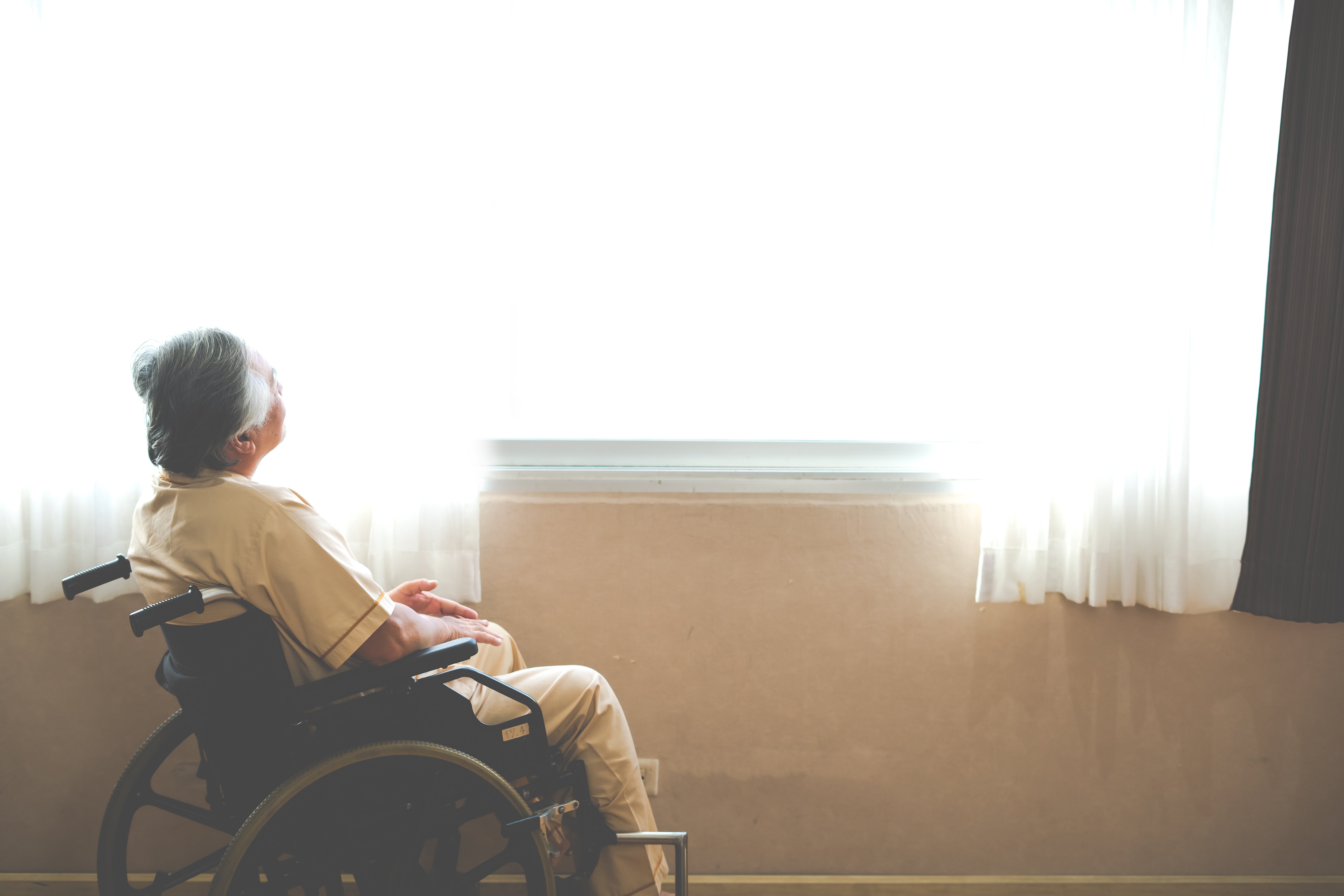Clinical Care
Palliative care is focused on providing patients with relief from the symptoms, pain, and stress of a serious illness – whatever the diagnosis. The goal is to improve the quality of life for both the patient and the family and provide an extra layer of support. Palliative care is appropriate at any stage of a serious illness and can be provided together with curative or life-prolonging treatment.
Inpatient care: We have teams of doctors, advanced practice providers, and social workers at UMass Memorial Medical Center, University campus, and Memorial Hospital. We have a music therapy program based at the University campus.
Outpatient care: We have a clinic in the Ambulatory Care Center (ACC) building on the University campus. We see patients in person or by telehealth and have a nurse navigator on phone triage for patients and families 5 days per week. “The palliative care team provides invaluable support for our patients at the time of their greatest need. We have built a collaborative model between our teams and patients, and families know they can rely on us to deliver excellent care throughout their cancer journey.”
“The palliative care team provides invaluable support for our patients at the time of their greatest need. We have built a collaborative model between our teams and patients, and families know they can rely on us to deliver excellent care throughout their cancer journey.”
- David Cachia, MD, Executive Council Chair, Division of Hematology/Oncology
 “Working with the palliative care division at UMass has been one of the most rewarding experiences of my career. Integrating their expertise, dedication, and compassion for patients living with serious illnesses with MIH allows us to provide high-quality care to an incredibly vulnerable population in an innovative and accessible way that prioritizes comfort and dignity."
“Working with the palliative care division at UMass has been one of the most rewarding experiences of my career. Integrating their expertise, dedication, and compassion for patients living with serious illnesses with MIH allows us to provide high-quality care to an incredibly vulnerable population in an innovative and accessible way that prioritizes comfort and dignity."
- Laurel O'Connor, MD
 "UMass Palliative Care have been exemplary, going beyond the call of duty to improve the quality of life our neurological patients. They have reduced their pain, their emotional distress, and provided guidance on important discussions. Our patients and their families have provided exceptional feedback over the years. They feel heard, supported, and have a strong advocate by their side."
"UMass Palliative Care have been exemplary, going beyond the call of duty to improve the quality of life our neurological patients. They have reduced their pain, their emotional distress, and provided guidance on important discussions. Our patients and their families have provided exceptional feedback over the years. They feel heard, supported, and have a strong advocate by their side."
- Margaret Ayo Owegi, DO
Learn more about palliative care by viewing the patient cases below.
Elizabeth (she/her)
 Elizabeth (she/her) is a 90-year-old woman living with progressive dementia. She lives with her daughter Maria and has limited financial resources. She has trouble swallowing food and is losing weight. Elizabeth has had more angry outbursts and Maria is feeling guilty as she decides whether to place her mother in a nursing facility.
Elizabeth (she/her) is a 90-year-old woman living with progressive dementia. She lives with her daughter Maria and has limited financial resources. She has trouble swallowing food and is losing weight. Elizabeth has had more angry outbursts and Maria is feeling guilty as she decides whether to place her mother in a nursing facility.
The palliative care team meets Maria over video telehealth while Elizabeth is treated for pneumonia with antibiotics and oxygen by the UMass Hospital at Home Program. Our team helps manage Elizabeth’s agitation and provides emotional and practical support her daughter. After Elizabeth recovers, we continue our care through telehealth and home visits with community partners to help her remain at home.
Meet our partners:
Hospital at Home – Taki Michaelidis, MD
Notre Dame Palliative Care at Home – Elizabeth Kay, MS, CNP, GNP-BC, ACHPN, and Steve Burokas, NP
VNA Care Network – Kerry O’Connor, NP
Derrick (he/his)
 Derrick (he/his) is a 35-year-old married man diagnosed with advanced colon cancer who suffers from severe cancer pain and depression. His oncologist strongly recommends palliative care, and our team carefully and effectively prescribes medications for his symptoms and connects him with a health psychologist. We work with pain anesthesia colleagues who administer a nerve block which greatly alleviates his pain and allows Derrick to return to work. He feels supported by our nurse navigator who helps him navigate the health care system with more confidence.
Derrick (he/his) is a 35-year-old married man diagnosed with advanced colon cancer who suffers from severe cancer pain and depression. His oncologist strongly recommends palliative care, and our team carefully and effectively prescribes medications for his symptoms and connects him with a health psychologist. We work with pain anesthesia colleagues who administer a nerve block which greatly alleviates his pain and allows Derrick to return to work. He feels supported by our nurse navigator who helps him navigate the health care system with more confidence.
Meet our partners:
Oncology – David Cachia, MD
Pain anesthesia – Pascal Scemama, MD, MBA
Health psychology – Tim Sannes, PhD
Rosa (she/her)
 Rosa (she/her) is 57-year-old woman with end-stage COPD and heart disease. She is divorced and lives in an apartment but has no support other than her partner with whom she lives. They don’t have a car, so she has difficulty getting to her appointments. She often calls 911 and has been in the hospital five times in just the last four months for pneumonia, dehydration, and a heart attack.
Rosa (she/her) is 57-year-old woman with end-stage COPD and heart disease. She is divorced and lives in an apartment but has no support other than her partner with whom she lives. They don’t have a car, so she has difficulty getting to her appointments. She often calls 911 and has been in the hospital five times in just the last four months for pneumonia, dehydration, and a heart attack.
Rosa’s lung doctor refers her to our pulmonary-palliative care outpatient clinic. Together, we build trust and improve Rosa’s breathing with medications and home oxygen. When Rosa has a COPD flare, we work with mobile paramedics to triage and treat her condition at home and avoid ER visits. We connect Rosa with virtual pulmonary rehab and support groups, and she feels less short of breath, less alone, and more empowered to care for herself.
Meet our partners:
Pulmonary Medicine – Shaun Toomey, MD
Mobile Integrated Health – Laurel O’Connor, MD, MSc
Healthy at Home Study – Apurv Soni, MD, PhD
Robert (he/his)
 Robert (he/his) is a 47-year-old with amyotrophic lateral sclerosis (ALS), on disability from his job. He lives with his partner and their children, ages 8 and 10. He’s recently had a feeding tube placed and uses a BiPap machine to help him breathe. He often has leg spasms. He worries about how to talk with his children about his health, and what the road ahead looks like for all of them.
Robert (he/his) is a 47-year-old with amyotrophic lateral sclerosis (ALS), on disability from his job. He lives with his partner and their children, ages 8 and 10. He’s recently had a feeding tube placed and uses a BiPap machine to help him breathe. He often has leg spasms. He worries about how to talk with his children about his health, and what the road ahead looks like for all of them.
The palliative care team works with Robert to better understand his hopes, worries, and priorities. They treat his leg spasms, and Robert feels less anxious and sleeps better. They partner with his ALS doctors to prepare him and his partner for his future care, including home-based services. The palliative care social worker helps Robert sensitively communicate with his children at their pace.
Meet our partners:
ALS Clinic – Margaret Ayo Owegi, DO
Movement Disorders Clinic – Anindita Deb, MD
Learn more about the UMass Chan ALS Clinic and Research Center